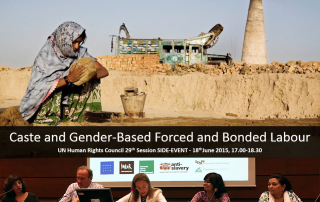Report: Widespread child slavery in India’s yarn industry, most victims are Dalits
The India Committee on the Netherlands (ICN) report ‘Fabric of Slavery – Large-scale forced (child) labour in India’s spinning mills’ shows that various forms of modern slavery, including child slavery, are found in more […]



